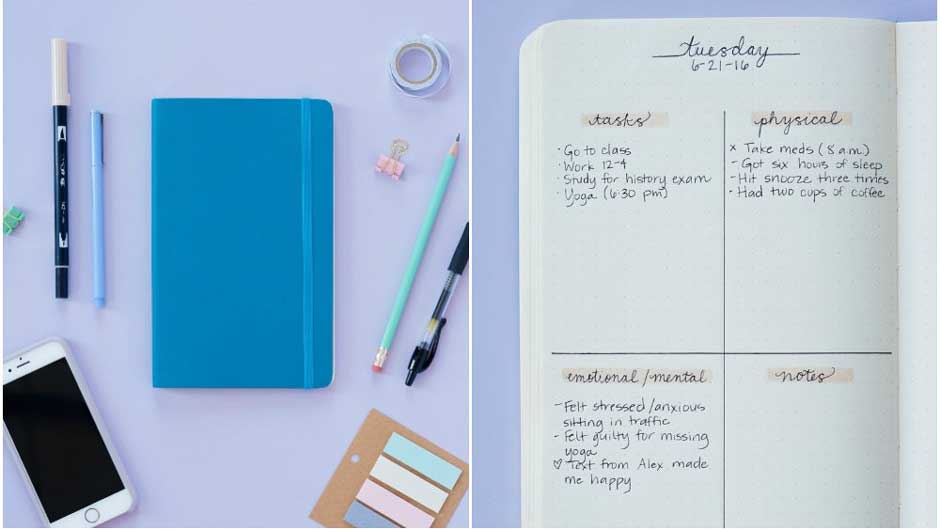How To Use Journals As A Tool For Mental Health

In a world of constant interruptions and floods of information, it is hard to escape in a person the inability to think clearly and experience emotions at the same time. The journal has become an uncomplicated but effective activity to give a person a system of experiencing the things and to systematize his/her thoughts. When writing habitually, individuals have the opportunity to experiment with emotions, ponder over daily challenges and open the door to learn more about themselves.
Journaling is not a fancy process that involves the use of costly tools or techniques and that is why it is affordable to virtually anyone. A release and relief can be experienced as one commits to paper what thought and feeling has stirred the mind, and also assists in discovering certain patterns and things, which would otherwise be unknown. Journaling may also serve as a friend to those who need guidance to make sense of what is happening in a hectic world.
The Connection Between Writing And Mental Health
The process of writing appeals to the mind as it forces one to take his or her time to spell out words and construct sentences. It is only through this process that people are able to take time and reflect and this can ease people off and give them a feeling of relaxation. Journaling gives an emotional release that may not be easily communicated through spoken means, which makes journaling an effective method of keeping everything in balance.
Journaling is a recommendation that mental health professionals make as a component of an extended self-care process. In conjunction with such approaches as narrative therapy or counselling, writing can be used to support professional treatment by consolidating self-awareness outside of the organized sessions. The combination aids in helping people control their emotions and develop greater coping capabilities.
Organizing Thoughts And Emotions
Arranging disjointed ideas in a systematic manner is one of the most popular advantages of journaling. The worries, plans and thoughts in the day to day life tend to overlap thus creating a lot of worry when they are not structured. When you put them down to paper, it becomes easy to focus on what is important and abandon some needless issues.
Emotions also can be minimized by the process of putting them into words. At least, it is less threatening when the anger, sadness, or anxiety is written down on paper, instead of being stored in the mind. Such clarity can open space to more balanced thinking and better decision making.
Building Self Awareness
Journaling may also have the effect of creating self-awareness of how an individual thinks and behaves. As time goes by, looking back on entries can make people realize the way they react to some events and relationships. Such observations can be priceless in individual development and emotional recovery.
Self-knowledge built as a result of journaling could prompt people to make purposeful shifts in their lives. When people recognize the bad habits or patterns of thought, they will be able to work on better responses to stress and challenges. This is what turns journaling not only into a source but also an instrument of improvement.
Enhancing Problem Solving Skills
A new viewpoint is usually given by writing about problems. Possible solutions can be made more evident when the situations are detailed. Journaling may serve as a one-person conversation in which one puts the alternatives on the table and considers them without external evaluation. This has the capability of alleviating feelings of stagnation or frustration.
Writing as a form of problem solving does not need answers now. Rather, exploration and creativity are encouraged and the solutions will tend to be ones that would not otherwise have been taken into account. This practice builds over time a confidence in taking on big and small challenges.
Supporting Emotional Healing
To individuals who are in the process of overcoming tough times, journaling may serve as an outlet to the hidden feelings. The ability to write about painful experiences enables the people to realize their experiences without the fear of judgments. This may be an effective action in grief, trauma or even current stress processing.
Journaling can be used as emotional first aid, however, not in place of professional assistance. Journaling can be used with counselling or therapeutic support and offers continuity between sessions and a way to allow people to participate more fully in the process of healing.
Encouraging Mindfulness And Presence
The other quality of journaling that is a strength is that it places people in the present. One needs attention and concentration in writing and this of course distracts the mind of perpetual distraction. Such a conscious position is able to lessen the feeling of anxiety towards the past or future and increase the state of calmness.
Journaling also leads to mindfulness and enables an individual to notice some simple aspects of his/her life. Documenting gratitude, random notices or significant experiences helps to reinforce a sense of the present and leads to a more optimistic outlook with time.
Practical Ways To Begin
A journalizing practice does not have to be complex. Some individuals like writing in the morning to establish goals of the day and others write in the evening to give a reflection of the day. Consistency is the key even to writing a small number of sentences per day.
Journaling becomes easier in due time since it becomes a habit. It will be authentic to allow the writing to be personal and free of judgment. The practice can then be tailored to the individual tastes and lifestyles whether it is done with pen and paper or digital platforms.
Conclusion
Journaling is much more than a diary of day to day experiences. It provides a time to be clear, reflect, and release emotion which facilitates mental health and personal development. By helping to arrange ideas, practice self-understanding, promote mindfulness, and help to solve a problem, it turns out to be a multifunctional and convenient instrument.
Journaling can reinstate the healing journey and understanding when combined with such professional strategies as counselling or narrative therapy. Taking time to practice this simple yet profound exercise, one may open the door to such knowing of themselves and develop the power of resistance to their daily lives.


